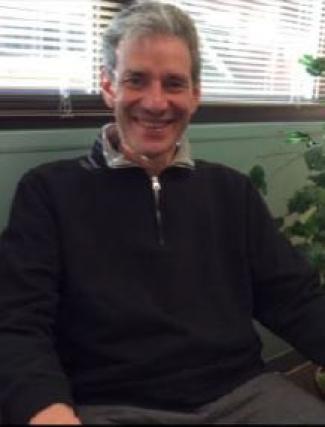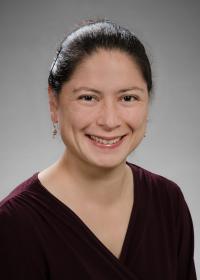Monte Strohl, a patient at the Memory and Brain Wellness Center who participates in speech language therapy at the UW Speech and Hearing Clinic, wants to help medical students understand the value of this approach for people living with primary progressive aphasia.
- People interested in learning about the PPA speech language services at UW Speech and Hearing Clinic can email the clinic at shclinic@uw.edu or call 206 543-5440.
Monte Strohl is a leader in many senses of the word. He led a high school walkout against the war in Vietnam. He later launched and ran a technology company. He coached his daughter’s softball team for 15 years and led them to win 7th place in a national championship. In 2008, even though Monte had been experiencing some odd problems writing, spelling common words, and cooking with his usual gourmet flair, he served as an Obama delegate in his local voting precinct.

Monte Strohl
At UW Medicine Neurology, the Strohl family learned that Monte had symptoms of a neurodegenerative disease affecting the left side of the brain. This condition, called primary progressive aphasia (PPA), is a variant of frontotemporal degeneration (FTD) that typically starts with problems with speaking, finding words, or understanding language, often before the age of 65.
Dr. Kimiko Domoto-Reilly, a UW Medicine neurologist, regularly sees people with PPA at the UW Memory and Brain Wellness Center (MBWC). She met Monte in the clinic in 2015. “While it’s important to understand the diagnosis, treatment for PPA remains focused on maintaining communication. As person’s language abilities evolve over time, the optimal approach becomes a moving target. For example, conversation partners switch from speaking to writing.” For Monte and his wife Diann, speech language therapy tailored to PPA patients has helped them to stay connected and hopeful as his symptoms bring new challenges to everyday life.
The Strohl family works with speech language pathologists at the UW Speech and Hearing Clinic, a stand-alone clinic within the Department of Speech and Hearing Sciences of the UW College of Arts and Sciences. This clinic sees 9,000 patients of all ages each year and also offers dedicated services for adults with aphasia (acquired communication disorder) due to frontotemporal degeneration.
The clinic runs a PPA support group, led by two graduate clinicians and a certified speech language pathologist. "The group is an ongoing opportunity for participants learn more about what might be occurring in their language systems, talk through challenges, and find new ways to communicate and compensate for losses," said Megan Caldwell, Lecturer and Neuro-Unit Coordinator in the Department of Speech and Hearing Sciences. “The family members are able to observe the group; they also tend to form supportive relationships with each other as well.”
Now a longtime member of the group, Monte is known to bring other participants "out" in an emotional sense and helps everyone feel included.
Nancy Alarcon, Director of the UW Speech and Hearing Clinic, says that speech language therapy is truly about “keeping people in the game of life.” She remembers the very first PPA patient to visit the clinic 20 years ago. This man could still write, even at a late stage of disease, so the therapists worked with him to discover ways to communicate with some key words. Another patient struggled to hold conversations, but she could still read aloud very well. She began to regularly read books to her young granddaughter as a way to stay in a close relationship even with few spontaneous words. Another person adapted to her cognitive losses by using a visual schedule, featuring pictures of the laundry machine, medication bottle, and meals, to guide her though the day.
“Our goal with PPA is not to fix the communication problem,” says Michael Burns, Senior Lecturer and Researcher at the UW Speech and Hearing Clinic, “but rather to maximize the amount of communication the patient has right now. We want to find the strategies that Monte can use to help him understand and express himself, so he can hang onto these skills for as long as possible.”
The UW Speech and Hearing Clinic is a teaching clinic, meaning that the team aims to train students for their careers in speech language pathology, with a focus on the needs of people with neurodegenerative diseases. Alarcon hopes this work will address the under-recognition of PPA in the medical community and the lack of access to resources such as speech therapy. "What we are doing is giving the next generation of speech language therapists the tools and experience to go out and change the delivery of services for people with neurodegenerative diseases, and have a better sense of what they can do as speech therapists," says Alarcon. "I think our graduate students recognize that PPA families desperately need speech therapy and that it plays an important role in treatment."

Dr. Kimiko Domoto-Reilly
Always eager to help make a difference, Monte recently stepped up to the plate to help educate second-year UW medical students at a fall symposium on PPA and related syndromes. He wanted to give them the chance to directly learn about the symptoms that they may someday see in the clinic. At the symposium, Drs. Domoto-Reilly and Burns had Monte perform a variety of tasks, as a way to demonstrate his profile of strengths and weaknesses, and encourage an understanding of an individual patient's experience. For example, the students learned how to conduct a neurological exam and assess memory and object recognition in patients who have impaired language.
In one moment, Burns reached out his hand to Monte and asked him for a handshake, but Monte gave him a hug. Burns explained that Monte always gives hugs in these situations; he knows that a handshake is a social greeting, but he finds it difficult to sequence the movement of extending this hand and opening it. Monte has developed problems with volitional movement. He compensates via strengths in emotional expressivity.
Monte’s sister Nancy Strohl, also in attendance, shared some thoughts with the students afterwards. "Today I think you saw Monte's spirit, humor, irreverence, and generous sprit, all things that have characterized him through his entire life. I hope you can think of Monte when practicing medicine for strengths, not only losses, where you see the person and not just the diagnosis." It seemed as though the medical students would remember Monte, as many from the audience approached him after the symposium to thank him for contributing to their education. And instead of reaching out for a handshake, each of them leaned in for a hug. —Genevieve Wanucha
- People interested in learning about the PPA speech language services at UW Speech and Hearing Clinic can email the clinic at shclinic@uw.edu or call 206 543-5440.





